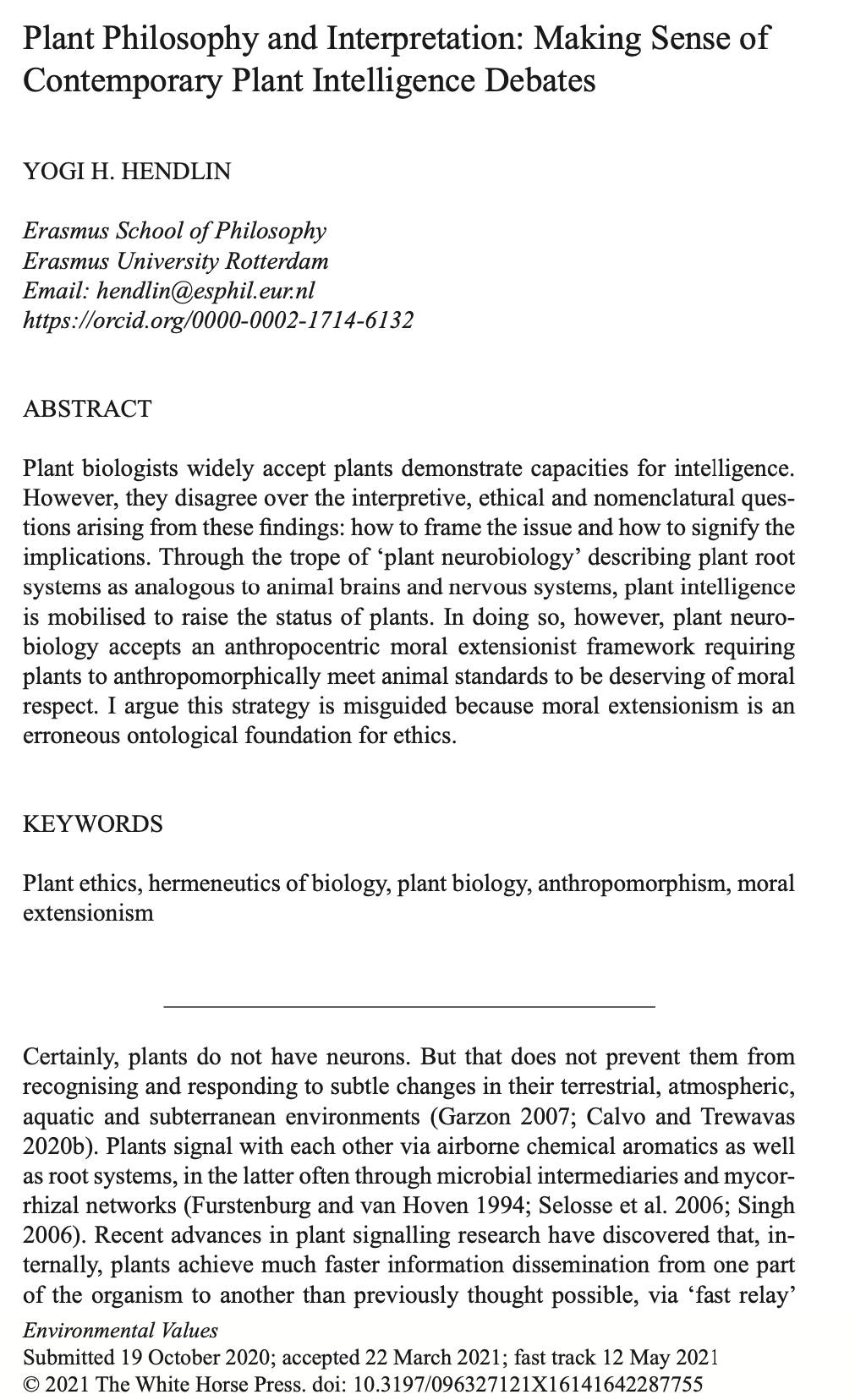I’m happy that a paper I first drafted in 2015 made it to the light of day in Environmental Values this week: “Plant Philosophy and Interpretation: Making Sense of Contemporary Plant Intelligence Debates.” This paper grew out of an Austrian Science Foundation grant I had as a postdoc in Vienna in 2015 which I presented at the International Society of Environmental Ethics in Kiel, Germany, and finally during the corona lockdown I had time to finish it. Paco Calvo generously offered comments before I submitted it.

The thrust of the paper is that plant neurobiology aims to borrow the nomenclature of animal (including human) biology in order to boost the moral standing of plants. By showing analogs between animal and plant hormones and processes (analogs to brains in the root subapex, as Darwin originally postulated), plants can be treated as moral patients. However, this approach fails to acknowledge the difference of plants, and value that difference. In attempting to use animal biology language for plants, however well intentioned by plant neurobiologists, speaking in the master’s language fails to do plants justice, and reaffirms the human- and animal-centric moral evaluative position. Instead, I offer a (non-utilitarian) pluralistic account of value that allows recognition of plant intelligence without requiring that intelligence to measure up against mammal intelligence.
Here’s the abstract: Plant biologists widely accept plants demonstrate capacities for intelligence. However, they disagree over the interpretive, ethical and nomenclatural questions arising from these findings: how to frame the issue and how to signify the implications. Through the trope of ‘plant neurobiology’ describing plant root systems as analogous to animal brains and nervous systems, plant intelligence is mobilised to raise the status of plants. In doing so, however, plant neurobiology accepts an anthropocentric moral extensionist framework requiring plants to anthropomorphically meet animal standards to be deserving of moral respect. I argue this strategy is misguided because moral extensionism is an erroneous ontological foundation for ethics.
DOI: https://doi.org/10.3197/096327121X16141642287755
